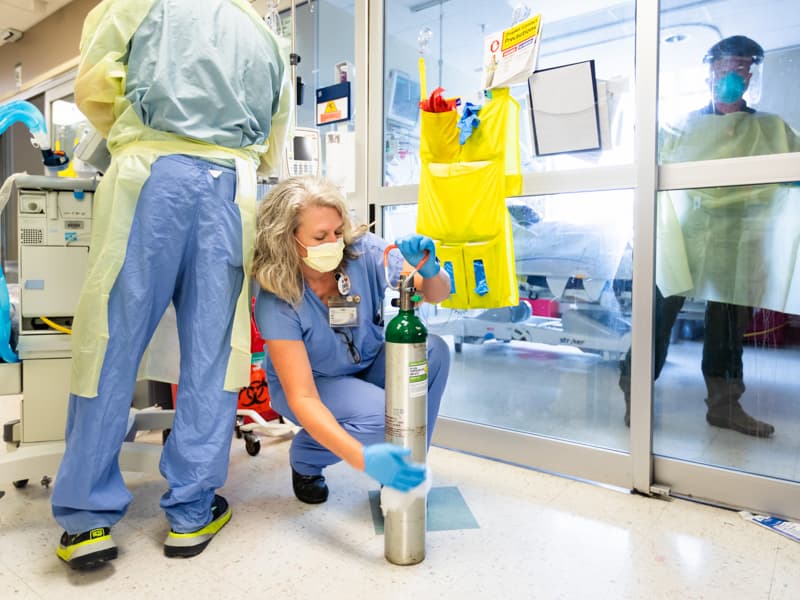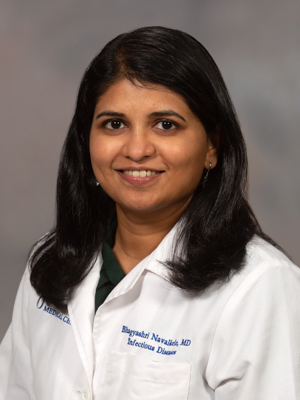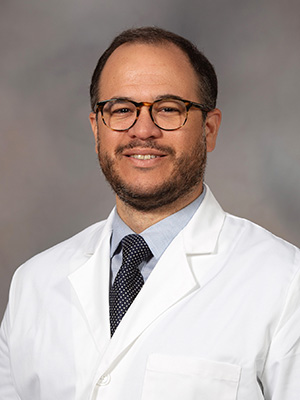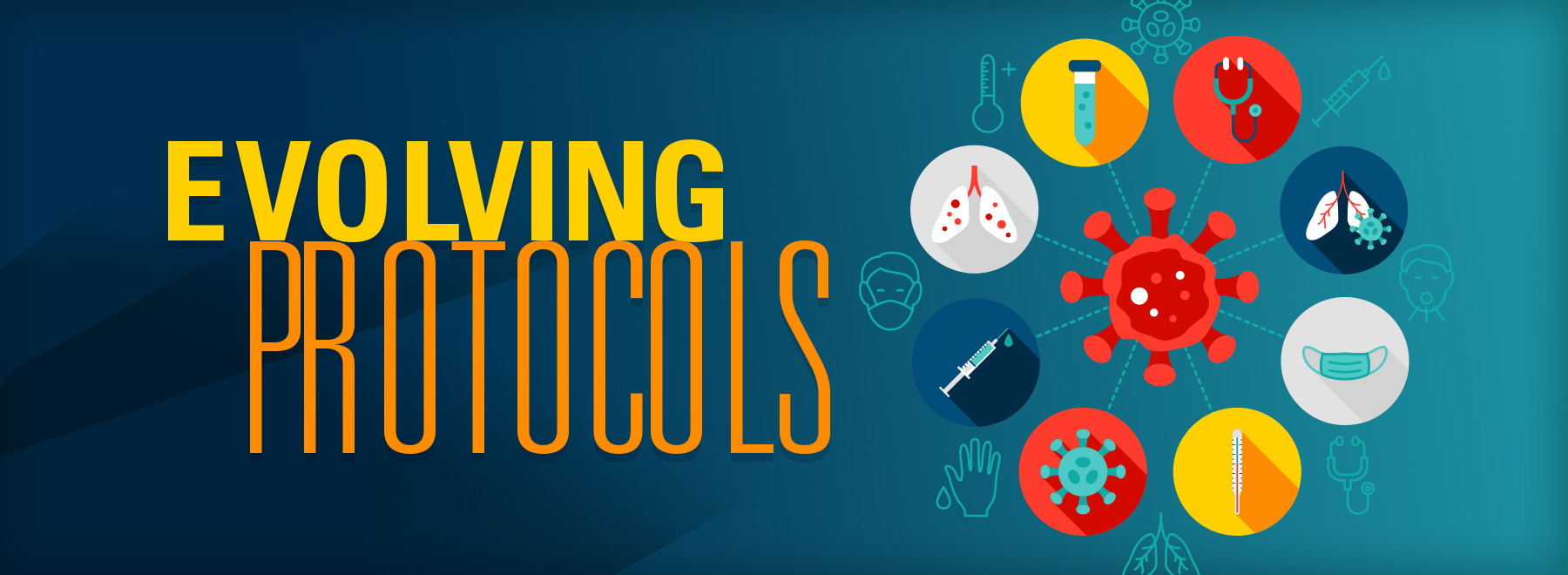Think the rules on COVID-19 keep changing? Here's why

Your mask primarily protects others, and not you, from the COVID-19 virus. Oh, now they say a mask gives the wearer protection, too.
This over-the-counter medicine could ease COVID-19 symptoms. Well, actually, probably not. Virus droplets only travel a few feet – wait, they can travel across a room.
We know a good bit about the virus. We know so little about this virus.
Sometimes, it’s hard to keep up with what seems like ever-changing details – and rules and recommendations – for COVID-19, a novel coronavirus never before seen on the planet.

“Even though we have understandings about other viruses, this one is still unique. We still have a lot of evolving knowledge about how this virus is behaving,” said Dr. Bhagyashri Navalkele, University of Mississippi Medical Center assistant professor of infectious diseases in the Division of Infectious Diseases and medical director of infection control and prevention.
“That’s how viruses start when they are new, like the Spanish flu,” Navalkele said. “Until we have more understanding of this virus, and as more research comes out, the more our knowledge changes on how it’s transmitted, how it can be prevented, and how it can be treated.”
To an impatient public clamoring for immediate solutions to a virus that was first reported in December 2019, it might seem like the information is constantly changing, said Dr. Jose Lucar, assistant professor of infectious diseases and medical director of UMMC’s outpatient antimicrobial services.

“Eleven months might seem like a long time, but it’s really not,” Lucar said. “It’s a very short period of time for well-conducted research to produce conclusive results to guide treatment and prevention policies. There’s been limited time to see the effects of interventions, and there’s a race to get acquired knowledge of things that normally would take longer. We need answers yesterday.”
When the virus treatment was initially focused on patient survival, Navalkele said, there wasn’t as much information flooding the public. “We were unaware of good treatment options and which might cause harm,” she said. “Now, we are focused on giving the right medications based on reliable data to patients and reducing deaths.
“Everybody’s trying to find a way to get this virus treated and taken care of,” she said. “The more information you get, the more confusing it can be. It’s very important to rely on research studies, and not to get too excited if something comes out in the media without looking at the actual studies.
“Someone might claim that this particular medication works really well, but when you actually look at the study results, you might find that it doesn’t really work that well, or a recommendation on a particular medication is not the right choice.”
Some scientists feel pressure to publish preliminary results quickly as opposed to “let’s try this and see the effects over six to 12 months, and waiting to complete studies and going through peer review processes,” Lucar said. That means some information is being released piecemeal, as opposed to conclusive findings.
When information on the virus seems to be springing from all directions, he said, it can cause confusion.
“There have been too many actors involved in sharing information, and some might not be the most qualified people to spread that information,” Lucar said. “That includes news stories, social media, and in some cases, physicians and the like who are not experts in infectious diseases and epidemiology.
“There have been different approaches in the media about how to spread information. Unfortunately, there’s also been a politicization of a number of topics, including prevention and treatment,” he said. “Because of the political climate we live in, it really affects how people perceive information. In time, there might be less controversy over what is effective, and what is not.”
Development of a vaccine has burgeoned, with more than 150 clinical trials ongoing worldwide in different phases, Navalkele said. Two vaccines in recent weeks have been touted as up to 94 percent effective and await emergency FDA approval, but that process is ongoing and it may be weeks or months before a vaccine is widely available, although some sources tout it as happening by mid-December.
Contrary to what people may hear, Navalkele said, “once it’s released, it’s still going to take at least a year to get everyone vaccinated. We will still have to follow precautions for a year, at least.”
Lucar sees the effects of changing or confusing information in his practice and personal life. “We as physicians have a responsibility to be well-informed and to provide our patients and community with accurate information to the best of our current knowledge, but always being aware that there are uncertainties,” he said. “It’s always important to recognize the uncertainties.”
Lucar’s recommendations? “Avoid taking health advice from sources that are mainly political, because the facts could be adjusted to a certain political perspective. That, to me, is key,” he said.
“There are a number of public health organizations and experts who are providing the best knowledge we have at the time. There’s a reason why they’ve had decades of experience,” he said. “I’d certainly avoid the other kind of information from people who are not qualified to give advice about public health.”
Navalkele is sure that one thing won’t change. “Masking, social distancing and hand hygiene are going to be our pillars of preventing the spread of COVID,” she said. “In the future, if those who are able to be vaccinated get it, things might change a little for them.
“We will probably have to continue masking, but we might be able to relax a bit on social distancing if everyone has been vaccinated and good herd immunity has been established,” Navalkele said. “It’s going to be evolving information once again. We still have to learn how long the vaccine is effective, and if will provide effective protection against all strains of COVID.”
The above article appears in CONSULT, UMMC’s monthly e-newsletter sharing news about cutting-edge clinical and health science education advances and innovative biomedical research at the Medical Center and giving you tips and suggestions on how you and the people you love can live a healthier life. Click here and enter your email address to receive CONSULT free of charge. You may cancel at any time.



